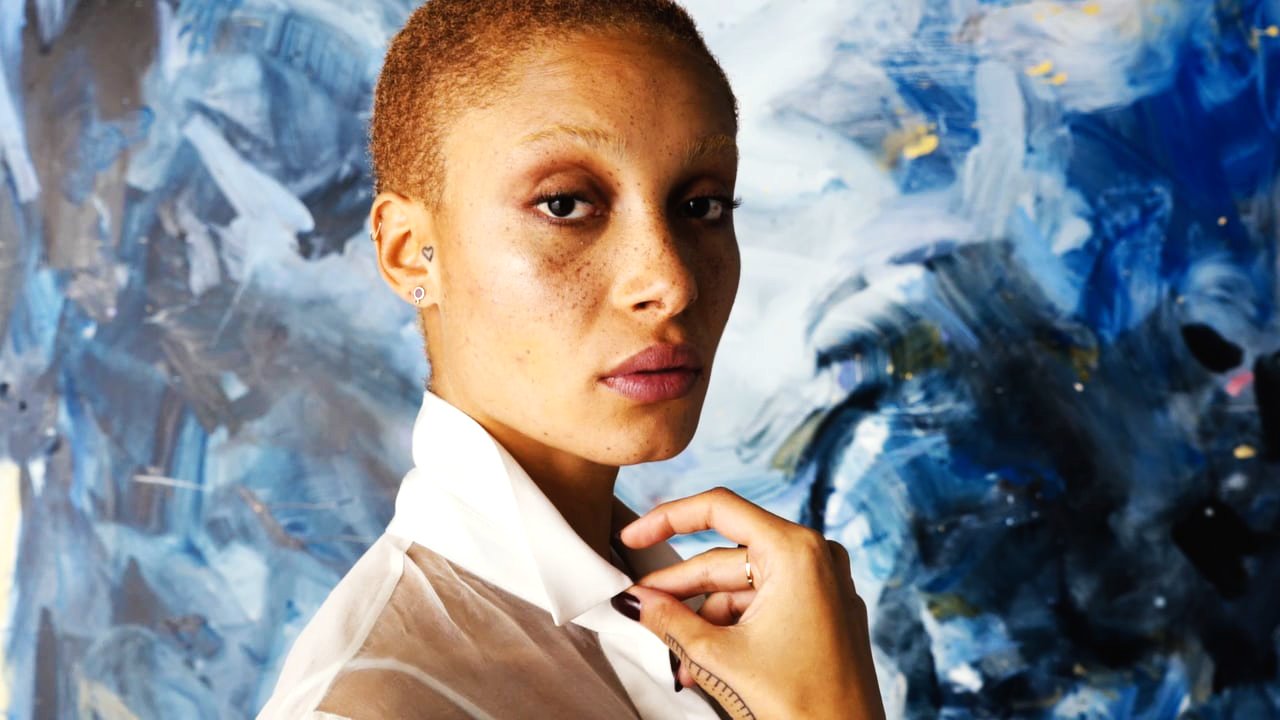I love Adwoa Aboah.. But I don’t really know how to convey my love for this woman. When I first think of her, her insane beauty comes to mind. Check bones so sharp you could mandolin vegetables on them, espresso shot eyes and a perfect, freckled almost sepia complexion. Yet, sharper, even than her cheekbones, is her intellect and vocal criticisms of the fashion industry.
She leads frank discussions around about mental health, body image and sexuality. Aboah uses Gurls Talk, the online platform she founded, to tackle issues ranging from imagery of black women in the media to the impact of social media on self-esteem. So that’s pretty great. A model who is using her position to scrutinize the fashion industry and address issues in earnest. She is passionate, opinionated and serious.
These qualities distinguish her from many other models out there. When Aboah gets video interviewed by Vogue she speaks compellingly, using her platform to challenge the very real diversity problem still highly visible in the fashion industry. This is serves as a refreshing break from the manner in which other models conduct themselves in interviews. There is no girlish prancing around, feigning giggles in a sickly-sweet manner (cough Poppy Delevigne, Gigi Hadid, Karlie Kloss etc.). She doesn’t want to be adorable. She looks the camera dead on and in her deep gravelly voice tells everyone why it’s all bullshit.
And that is exactly what Adwoa Aboah did last week when she gave a speech at the opening ceremony of London Fashion Week. She used the opportunity to highlight the recent allegations of abuse of models at the hands of powerful figures in the industry. Aboah praised Conde Nast and Kering/LVMH for their respective Model Charters, both of which are designed to implement positive change within their respective businesses. She describes how such efforts provide her with a growing sense of comfort and confidence, assured that we are taking the right steps.
This is the first move towards systematically changing the way we work collectively to protect the safety and rights of models in the industry. She stressed that the British Fashion Council must question how the fashion industry could better represent “the reality of our larger community and provide our next generation a proper example of what they see around them every single day?”. Her conclusion was extremely powerful “as a model and as a woman – I want to challenge each and every one of you today to think about what your role is within this industry and what you are going to do to ensure that you use your own voices to help change the system that has allowed such rampant abuse of power and fear to take advantage of so many that have not have voice. I plan to continue to use mine – and I challenge you today to do the same with yours.” Brilliant. Just really brilliant. That speech encapsulates all the reasons why, and this is not an overstatement, Aboah is one of the best role models that the fashion industry has ever produced.
But what is more courageous than Adwoa Aboah’s tenacity to critique the fashion industry, is her own candid discussion of her mental health struggles. I really (really!) implore you to watch her amazingly candid and honest video interview for The What’s Underneath Project by StyleLikeU. Aboah takes off her clothes while speaking frankly about her experiences of depression and addiction. Watching that interview really affected me more than I can say. I have struggled with some pretty serious mental health issues myself, and one thing that I have always found extremely hard is talking honestly, openly and accurately about my experiences.
There is still a huge amount of stigma around mental health. And a lot of that stigma may not even be external. People are more informed today than they perhaps even have been about mental health. But what many people who suffer from mental health conditions, myself included, find is that the people harshest on them for having these “issues” are themselves. It can be really difficult and uncomfortable to talk to even your closets friends about what’s actually “going on with you”, when you’re filled with self-loathing and embarrassment about whatever the hell is going on, because you yourself don’t really understand.
How the hell do you go about finding rational sentences among irrational web being spun inside your head? Should I even release these thoughts to the world outside my head? And then comes Adowa. “I just didn’t want to be Adwoa” So simple. So direct. So honest. “I was like, ‘F***, I don’t even know how to be this person. That self-hatred is something I work on on a daily basis.” Talking about anxiety, self-hatred, substance abuse and suicide attempts with clarity is not easy. However, she eloquently addresses the complexities of her personal struggles with the same forceful directness she employs in her political activism.
Often, and most especially when I’ve had a few drinks with friends, and the subject of mental health or my own mental health issues come up, I get very animated and suddenly find myself 20 minutes later deep into a Adowa Aboah based rant. I am sure my company appreciate the rambles, but just to make sure they don’t forget I will inbox them all the link to the StylelikeU interview I have been discussing. I realise now that in this article is many ways the written form of that same drunken adoring Adowa Aboah chatter.
Yet, the way I find myself depending and falling back on Aboah to navigate difficult discussions is case in point of her brilliance. She is helping young women formulate a dialogue around and broach the immensely difficult issue of mental health in a novel way. She is making young women (or at the very least this young woman) engage with and feel animated by important issues, forcing them to reevaluate their political and personal spheres.



